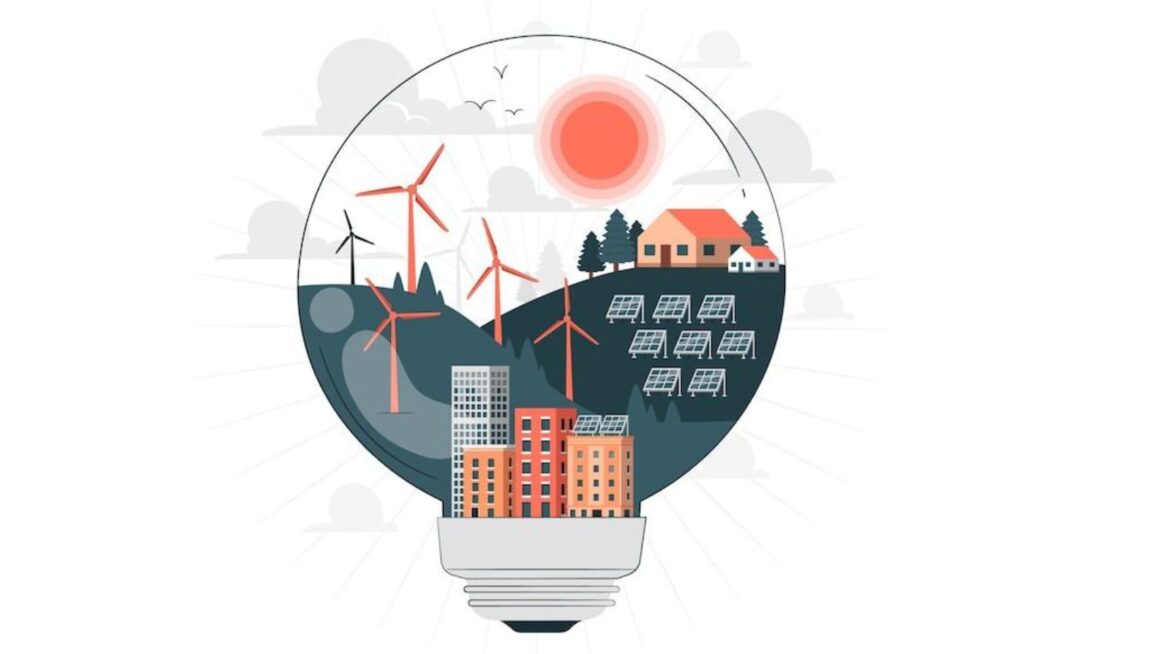
The shift to sustainable energy is more important than ever in light of the world’s current energy crisis and the urgent need to address climate change. This move allows one to solve energy inequities in marginalized communities, which promises environmental advantages and promotes social fairness. In developing countries where energy infrastructure is still being constructed, switching from fossil fuels to clean energy programs may create new employment in the renewable energy industry. This includes jobs in wind energy system maintenance and solar panels.
Business electricity and homes may become inexpensive and available to everyone, thanks to initiatives like energy-efficient building projects and renewable energy sources like solar and wind. Sustainable energy solutions may propel social and environmental progress by prioritizing equitable energy systems.
In communities with limited resources, renewable energy technologies like wind and solar power have the potential to revolutionize energy access. Because burning fossil fuels may be pretty expensive, many households find it prohibitive, especially those in rural or low-income areas. Having trouble paying for necessities like electricity and space heating, these groups frequently experience energy insecurity. However, more affordable and sustainable options are provided by renewable energy sources, which may both save the environment and enhance human life.
Thanks to solar energy production, communities may become less dependent on pricey fossil fuels by generating their power. The implementation of small-scale wind power projects and solar PV systems is helping many developing nations address the problem of electricity availability in rural regions. These initiatives allow communities to take charge of their energy requirements while reducing greenhouse gas emissions using renewable sources.
Affordable Energy for Low-Income Households
Clean energy’s cost is one of the primary obstacles to energy equity. High energy expenses disproportionately affect low-income households, as they are frequently the ones who struggle with them. This is especially true in emerging markets, where energy expenses can account for a sizeable household income. Governments and corporations may lessen this load by implementing sustainable energy initiatives emphasizing reasonably priced energy options.
One such option is energy-efficient housing. Integrating renewable energy technologies and enhancing energy efficiency can reduce house energy consumption without sacrificing occupant demands.

Eco-friendly and reasonably priced homes may be achieved through photovoltaic panels, improved geothermal systems, and solar PV installations. To increase the accessibility of clean energy technologies for marginalized groups, several nations are implementing subsidies and incentives.
Collaboration between Businesses and Governments
Partnerships between corporations, local authorities, and community-based groups are necessary to create an equitable energy system. Companies can play critical roles by investing in renewable energy technology and creating initiatives that prioritize the needs of underserved areas. By purchasing power from renewable sources, private businesses may lessen their carbon impact and encourage social responsibility.
Governments, however, can implement laws that promote energy justice. Policymakers may work to guarantee that everyone, regardless of income, has access to clean, inexpensive electrical energy by investing in renewable energy systems and promoting the construction of sustainable energy infrastructure. In addition to attending to the unique requirements of vulnerable groups, this calls for an emphasis on enhancing energy availability in both urban and rural locations.
The Environmental and Economic Impact
A sustainable energy system promotes economic growth, environmental preservation, and social equality. In developing countries where energy infrastructure is still being constructed, the switch from fossil fuels to clean energy programs may create new employment in the renewable energy industry. This includes jobs in wind energy system maintenance, solar panel installation, and electricity generation.
Renewable energy has innumerable positive effects on the environment. Carbon dioxide emissions, the primary cause of climate change, may be reduced by decreasing our dependency on natural gas and burning biomass. To further lessen the adverse environmental effects of burning fossil fuels, electricity may be produced utilizing renewable energy sources like wind and solar power.

For the world to be preserved for future generations, a move towards net zero emissions is essential.
Putting communities in charge of their energy systems is crucial to achieving fairness. The design and implementation of renewable energy projects can involve community-based groups, giving locals a voice in accommodating their energy demands. Individuals may invest in their energy future and support environmental justice using community ownership models, including cooperative solar farms.
This strategy promotes a feeling of shared responsibility and improves energy availability. Sustainable practices and policies that benefit all communities, especially those disadvantaged, are more likely to be supported by communities actively engaged in the shift to clean energy.
The Path Forward
Making the switch to clean power is crucial, as many nations struggle with the effects of the global energy crisis. Equal access to renewable energy resources as a top priority can establish a fairer and more sustainable society. Governments, corporations, and local communities must work together to achieve this, and they must be dedicated to giving those who need it most access to an inexpensive, clean energy supply.
Implementing sustainable energy solutions helps to advance social justice and combat climate change. By lowering the cost and increasing the accessibility of clean energy, we can empower disadvantaged communities, generate employment, and save the environment for coming generations.
